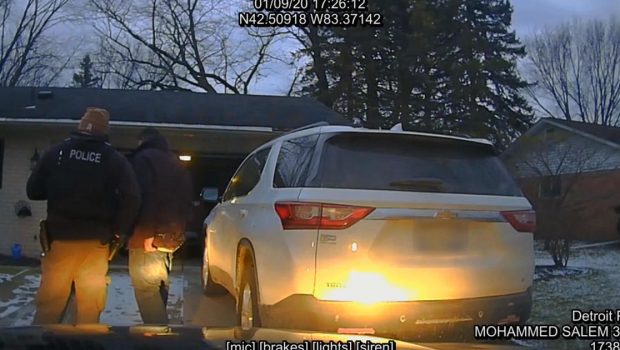Man suing for wrongful arrest after police used facial recognition technology to help identify him
When Detroit police arrested Robert Williams with the help of facial recognition technology, they thought they may have found a suspect in a case involving the theft of $3,800 worth of watches. Williams says he was shocked – he'd never been in trouble with the law before.
Facial recognition technology has proliferated among police departments across the country, who say it's been key in helping solve some of the toughest crimes. But with no well-established national guidelines governing how police should use the technology, three Black men have come forward since last summer alleging wrongful arrest due in part to facial recognition. Williams is among them. Anderson Cooper reports on police use of facial recognition on the next edition of 60 Minutes, Sunday, May 16 at 7 p.m. ET/PT on CBS.
In January of 2020, Williams was handcuffed in his driveway in a Detroit suburb in front of his wife and kids and locked in a cell overnight. When detectives finally interviewed him, they showed him photos of their suspect, including images from a security camera inside the store where the watches had been stolen.
"And I looked at it, picked it up and held it up to my face and I said, 'I hope you all don't think all Black people look alike.' At this point, I'm upset…why am I even here?" Williams tells Cooper. According to Williams, one of the detectives replied ''So, I guess the computer got it wrong."
Detroit Police had come to Williams after they'd asked the Michigan State Police to run a photo taken from the store security camera through their facial recognition system, which searched a database of nearly 50 million faces that included mugshots, but also state IDs and driver licenses. That facial recognition system returned an old driver's license photo of Williams in a list of 243 possible matches. It was supposed to be used by investigators as a lead only, not probable cause for arrest. Williams was ultimately released and the charges against him were dismissed. He's now suing with the help of the ACLU. Detroit Chief of Police James Craig attributed what happened to Williams to "sloppy investigative work."
"That's part of the story, for sure," says Clare Garvie, a lawyer at Georgetown Law's Center on Privacy and Technology, of the investigative work in the case. "But face recognition is also part of the story."
Garvie has been tracking police use of facial recognition for years -- and legislators, law enforcement and software developers have all sought her input on the topic. Garvie estimates facial recognition has been involved in hundreds of thousands of cases, but she says some police may be relying too heavily on the technology in the course of their investigations. She adds, "There are very few rules in most places around how the technology is used."
Cooper also speaks to Patrick Grother, a computer scientist who tests facial recognition algorithms for accuracy at a little-known U.S. government agency called the National Institute of Standards and Technology. He says the technology isn't perfect.
"They make mistakes, false negative errors, where they don't find the correct face, and false positive errors, where they find somebody else," says Grother. "In a criminal justice context, it could lead… to an incorrect arrest."
One city and one state have put a moratorium on the use of facial recognition by police and 19 U.S. cities have banned it altogether.








Gloss